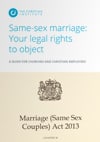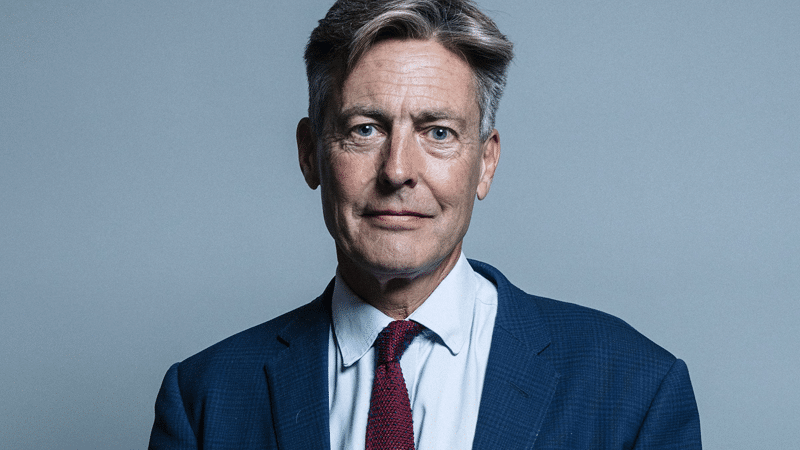
Same-sex marriage: Your legal rights to object
A guide for churches and Christian employees
Same-sex marriage is now legal in England and Wales. Under the Marriage (Same Sex Couples) Act, the first same-sex marriages took place on 29 March 2014.

A motion to force same-sex weddings on the Church of England (CofE) is to be discussed by Parliament next week.
On Tuesday, Ben Bradshaw MP is expected to present a motion “to enable clergy of the Church of England to conduct same sex marriages on Church of England premises in certain circumstances”.
The CofE recently voted to “welcome” plans for churches to bless same-sex partnerships, but churches cannot conduct same-sex weddings.
The motion itself cannot change the law, but Bradshaw, who was one of the first MPs to enter into a civil partnership, said he wanted to “draw attention to an issue” and hoped it would be “a precursor to actual legislation”.
Co-sponsors of the Bill, which is being introduced under the Ten Minute Rule, include Harriet Harman, Dame Margaret Beckett and Sir Peter Bottomley.
Under the 2013 same-sex marriage legislation, no church can be forced to conduct same-sex weddings. This is because of four legal safeguards, often called the ‘quadruple lock’.
Maria Miller, the minister originally responsible for the Marriage (Same Sex Couples) Act 2013, said at the time that protections afforded to churches by the legislation were “iron clad”. Bradshaw himself acknowledged that it was the “prerogative” of the CofE not to conduct same-sex weddings.
Responding to Bradshaw’s motion, The Christian Institute’s Director Colin Hart said it “flagrantly interferes with Church doctrine and must be decisively rejected”.
“If successful, this brazen attack on religious liberty undermines, and could ultimately wreck, the whole package of protections for churches.”
Church of England Minister Revd Dr Ian Paul accused Bradshaw of “sabre rattling”, adding: “Just think which countries in the world allow the secular state to dictate religious belief. It’s not a pretty list.”
A spokesperson for the Church of England said: “Ten Minute Rule Bills provide an opportunity for Members of Parliament to air views on a range of matters and members of the Church of England’s General Synod will no doubt listen carefully to views expressed in Parliament”.
• makes clear that a religious marriage ceremony of a same-sex couple will only be possible if:
i. the governing body of the religious organisation has opted in by giving explicit consent to marriages of same-sex couples; and
ii. the individual minister is willing to conduct the marriage, and
iii. if the ceremony takes place in a place of worship, those premises have been registered for marriages of same-sex couples.
• explicitly states that no religious organisation can be compelled by any means to opt in to marry same-sex couples or to permit this to happen on their premises; and no religious organisation or representative can be compelled by any means to conduct religious ceremonies for same-sex couples.
• amends the Equality Act 2010 to make clear that it is not unlawful discrimination for a religious organisation or representative to refuse to marry a same-sex couple.
• ensures that the common law legal duty on the clergy of the Church of England and the Church in Wales to marry parishioners does not extend to same-sex couples.
It also protects the Church of England’s Canon law, which says that marriage is the union of one man with one woman, so that it does not conflict with civil law.

Same-sex marriage is now legal in England and Wales. Under the Marriage (Same Sex Couples) Act, the first same-sex marriages took place on 29 March 2014.
A ‘sad day’ as CofE votes to bless same-sex partners
CofE bishops endorse blessing same-sex relationships
Church of England urged to learn from mistakes from abroad on same-sex marriage